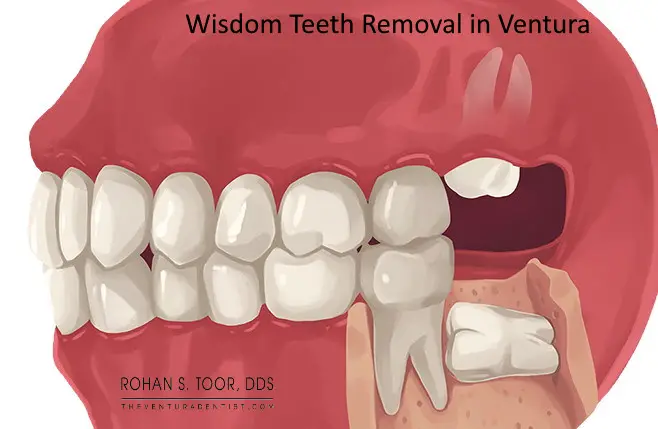Last Updated on 3 weeks by DR. ALBIN SIPES
Aftercare of wisdom tooth removal includes taking pain medication, applying ice, eating soft foods, and maintaining good oral hygiene. Wisdom tooth extraction is a common dental procedure that involves removing the third molars at the back of the mouth.
This article will provide essential information on how to care for the surgical site after having wisdom teeth extracted. Taking proper care is crucial for faster healing and avoiding complications such as infections and dry sockets. By following these aftercare instructions, you can ensure a smooth recovery and get back to your normal routine as soon as possible.

Credit: askthedentist.com
Importance Of Aftercare For A Swift Recovery
Good aftercare is crucial for a swift recovery after wisdom tooth removal. Proper aftercare helps in promoting healing and minimizing complications. By following the dentist’s instructions, you can reduce the risk of infection and alleviate post-operative pain. Regularly rinsing with warm saltwater and avoiding strenuous physical activities will aid in the healing process.
Additionally, maintaining a soft-food diet for a few days and using ice packs on the affected area can help reduce swelling. Moreover, taking prescribed pain medications as directed will ensure comfort during the recovery period. Proper aftercare greatly impacts the recovery process, speeding up healing and allowing you to return to your normal routine in no time.
Risks And Complications Of Neglecting Aftercare
Neglecting aftercare for wisdom tooth removal can lead to potential complications and risks. These include infections, excessive bleeding, dry socket, and damage to surrounding teeth. Following proper aftercare measures is necessary to prevent these issues. By keeping the extraction site clean, using prescribed pain medications, and avoiding tough foods, you can reduce the risk of infections.
Gently rinsing with warm saltwater can also help promote healing. It is crucial to avoid smoking and drinking through a straw, as these activities can dislodge the blood clot and increase the risk of dry socket. Additionally, practicing good oral hygiene and attending post-operative check-ups with your dentist are essential for preventing complications.
Taking these measures seriously will aid in a smooth and successful recovery from wisdom tooth removal.
The Role Of Aftercare In Minimizing Pain And Discomfort
The role of aftercare practices in minimizing pain and discomfort after wisdom tooth removal cannot be emphasized enough. By following proper aftercare routines, you can greatly alleviate pain and ensure a smoother recovery process. Tips for managing discomfort during this crucial time include keeping the surgical area clean by rinsing your mouth with warm saltwater, taking prescribed pain medication as directed, applying ice packs to reduce swelling, eating soft foods, avoiding strenuous physical activities, and keeping your head elevated while sleeping.
These practices not only assist in pain relief but also contribute to preventing complications and promoting faster healing. Remember, aftercare is essential for a successful and comfortable recovery journey. So, make sure to prioritize it for a smoother healing process after wisdom tooth removal.
Managing Pain And Swelling
Managing pain and swelling after wisdom tooth removal can be crucial for a comfortable recovery. One effective technique is applying an ice pack to the affected area. Gently place the ice pack on your cheek for 15 minutes at a time, with 15-minute breaks in between.
This helps reduce swelling and numb the area, providing relief from pain. Over-the-counter pain medications can also be beneficial in managing discomfort. However, be sure to follow the recommended dosage and consult your dentist or oral surgeon before taking any medications.
Remember, taking proper care of yourself is essential for a smooth recovery after wisdom tooth removal, ensuring minimal pain and swelling.
Proper Oral Hygiene Practices
Proper oral hygiene practices are crucial for the aftercare of wisdom tooth removal. Brushing and flossing techniques play a significant role in maintaining oral health. It is important to use gentle rinsing methods after meals to prevent any complications or infections.
By following these practices, you can minimize the risk of developing any oral health issues. Remember to brush your teeth and gums gently, using a soft-bristled toothbrush and fluoride toothpaste. Flossing should be done carefully and thoroughly to remove any food particles or debris.
Additionally, rinsing your mouth with a gentle mouthwash can aid in reducing swelling and promoting healing. By diligently practicing these oral hygiene techniques, you can ensure a smooth recovery process after wisdom tooth removal.
Nutritional Considerations During Recovery
The aftercare of wisdom tooth removal includes nutritional considerations during recovery. Soft and nutritious food choices are crucial for a smoother healing process. It is important to opt for foods that are easy to chew and swallow, such as soups, mashed potatoes, yogurt, and smoothies.
These foods provide essential nutrients and prevent discomfort or irritation. On the other hand, there are certain foods to avoid for faster healing. Hard and crunchy foods, such as nuts, chips, and raw vegetables, should be avoided as they can disrupt the healing process and cause pain.
Additionally, spicy or acidic foods should also be avoided as they can irritate the surgical site. By following these dietary guidelines, you can ensure proper nutrition and promote a quicker recovery after wisdom tooth removal.
Maintaining Oral Cleanliness
Maintaining oral cleanliness is crucial for proper aftercare of wisdom tooth removal. One important aspect is rinsing with saltwater which helps in reducing swelling and preventing infection. Along with this, it is important to use proper brushing techniques for sensitive areas.
Regular brushing and flossing help in keeping the area clean and free from food particles. It is recommended to avoid using a toothbrush with hard bristles as it can irritate the surgical site. Instead, opt for a soft-bristled toothbrush and gently brush the surrounding teeth and gumline.
In addition to this, it is advisable to avoid consuming hot and spicy foods that can increase discomfort. Following these measures diligently helps in maintaining oral hygiene and promoting speedy recovery after wisdom tooth removal.
Avoiding Habits That Could Disrupt Healing
Wisdom tooth removal requires proper aftercare to ensure successful healing. One crucial aspect is avoiding habits that could disrupt the healing process. It is advised to stay away from smoking and alcohol consumption, as they can delay healing and increase the risk of infection.
Additionally, strenuous activities should be avoided, as they can put unnecessary pressure on the surgical site and slow down the healing process. Instead, it is recommended to rest and take it easy for a few days after the surgery. Remember to follow these instructions to minimize complications and promote a speedy recovery.
Your oral surgeon will provide you with specific aftercare guidelines, so make sure to follow them diligently for optimal results.
Frequently Asked Questions On Aftercare Of Wisdom Tooth Removal
How Long Does It Take To Recover From Wisdom Tooth Removal?
The recovery time after wisdom tooth removal varies, but most people can expect to feel better within a few days to a week. It is important to follow the aftercare instructions provided by your dentist to ensure a smooth healing process.
What Can I Eat After Wisdom Tooth Removal?
After wisdom tooth removal, you should stick to soft and cool foods like yogurt, smoothies, mashed potatoes, and scrambled eggs. Avoid hot or spicy foods, as well as hard or crunchy foods, which can irritate the extraction sites.
How Can I Manage Pain After Wisdom Tooth Removal?
Pain after wisdom tooth removal can be managed by taking prescribed pain medication or over-the-counter pain relievers as directed by your dentist. Applying an ice pack to the outside of your face for 15-minute intervals can also help alleviate discomfort.
Can I Brush My Teeth After Wisdom Tooth Removal?
You should avoid brushing the surgical area for the first 24 hours after wisdom tooth removal. After that, you can gently rinse your mouth with saltwater and carefully brush your other teeth, being cautious around the extraction sites.
When Can I Resume Normal Activities After Wisdom Tooth Removal?
It is best to rest for the remainder of the day after wisdom tooth removal. Resume normal activities gradually the next day, but avoid strenuous exercises, smoking, and drinking through a straw for a few days to ensure proper healing.
Conclusion
Proper aftercare following wisdom tooth removal is crucial for a smooth and speedy recovery. By adhering to the guidelines set by your oral surgeon, such as taking prescribed medications, maintaining oral hygiene, and practicing dietary restrictions, you can minimize discomfort and prevent complications like infection or dry socket.
It is vital to schedule and attend follow-up appointments to ensure that healing progresses as expected, and any potential issues are addressed promptly. Remember to rest and allow your body the time it needs to heal, while avoiding activities that could disrupt the surgical site.
By following these recommendations, you can navigate the aftercare process with confidence and experience a quicker return to normalcy. Always consult your dentist or oral surgeon for personalized advice, as every individual’s recovery timeline may vary. Stay diligent and patient, and before you know it, you’ll be fully recovered and ready to enjoy life with your newly extracted wisdom teeth behind you.




